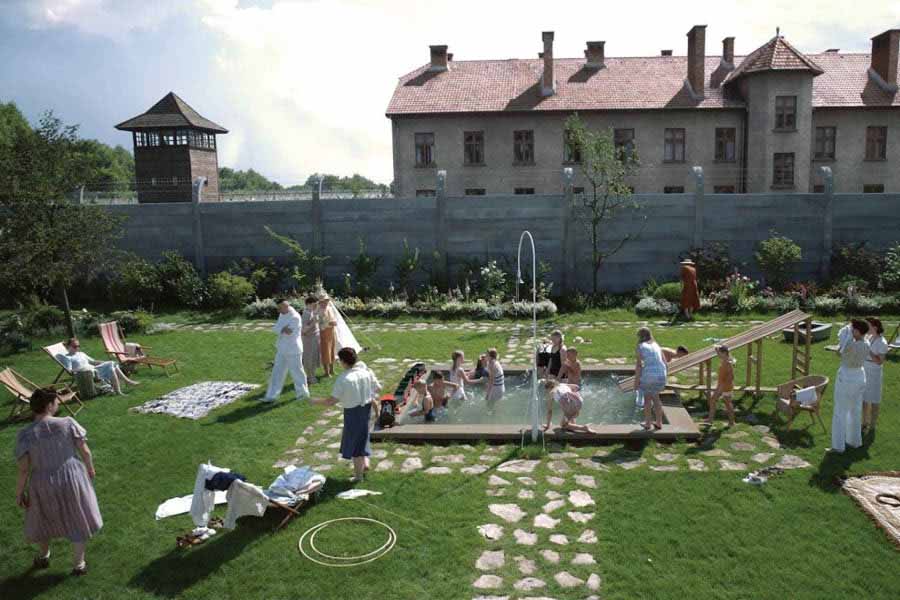Jonathan Glazer’s The Zone of Interest — competing for the Oscars in five categories: film, director, adapted screenplay, sound and international feature — is a film that defies conventional storytelling by focusing on the eerie silence that shrouds the conscience of its characters. Set against the backdrop of Auschwitz concentration camps in the early 1940s, Glazer paints a chilling portrait of a family ensconced in luxury and overlooking the horrors unfolding outside their garden walls.
At the centre of this unsettling film, based on Martin Amis's 2014 novel The Zone of Interest, is Nazi commander Rudolf Höss, portrayed with clinical precision by Christian Friedel, and his wife Hedwig, played with a chilling indifference by Sandra Hüller. Their home, a modernist marvel, is in stark contrast to the grim reality of the Nazi concentration camp at Auschwitz that is just some footsteps away. As the Höss family revels in their idyllic life, the atrocities in the camp are reduced to background noise.
In a scene, Hedwig tries on stolen garments with the frivolity of a fashion model, while Rudolf discusses gas chamber blueprints with the detached manner of a businessman. The Zone of Interest masterfully captures this apathy and depravity, showing how power and privilege corrupts and destroys one’s moral fabric, forcing viewers to confront the impact of indifference in the face of unspeakable evil.
Glazer steers away from sensationalising the suffering of the victims of Auschwitz and opts for subtlety over spectacle, allowing the horror to simmer beneath the surface with a quiet intensity. The film’s power lies in its ability to stir deep emotions with minimalistic imagery. For instance, in a fleeting moment, Hedwig’s mother gazes at the camp’s chimney fire reflected in the bedroom window, driving home the massacre underway in the camp. It is these images that stick on and which you can’t quite shake off long after the credits have rolled.
In the final moments of the film, as you bear witness to the haunting silence of the present-day Auschwitz Museum, you are reminded of the words of Edmund Burke: “The only thing necessary for the triumph of evil is for good men to do nothing”.










